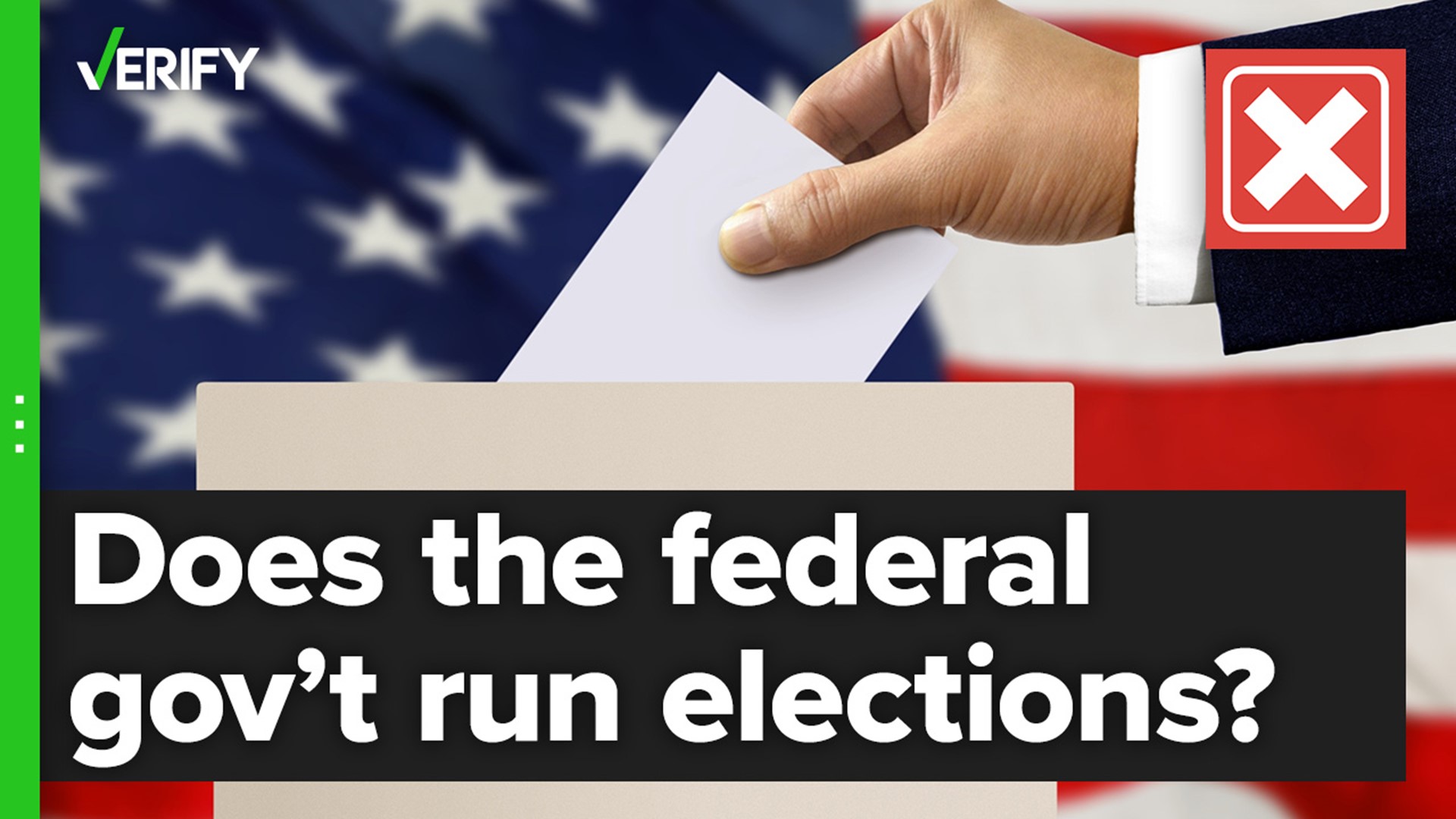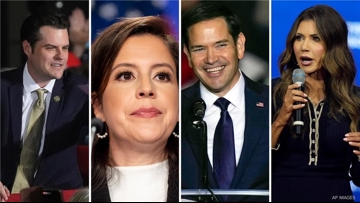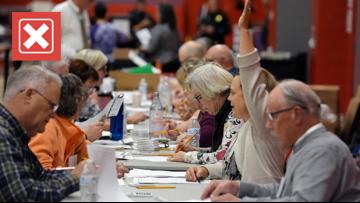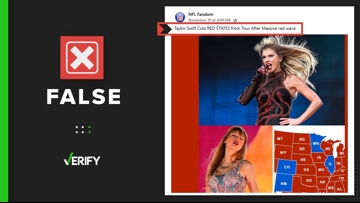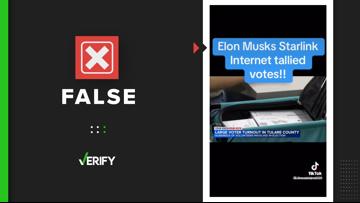The U.S. midterm elections are approaching, with voters submitting their ballots before or on Nov. 8.
Here at VERIFY, our mission is to stop the spread of misinformation, which includes answering common questions surrounding the voting process. In this article, we look at who runs elections and why. When you’re voting on candidates for federal office, you might assume the U.S. government has a hand in running those elections. But is that true?
This reporting is part of a series of stories ahead of the midterm elections. If you have any questions about the elections, email us at questions@verifythis.com or message us on social media @verifythis.
THE QUESTION
Does the federal government run elections?
THE SOURCES
- U.S. Constitution
- National Constitution Center
- Election Reformers Network, an organization that supports impartial election management
- National Conference of State Legislatures (NCSL)
- California Secretary of State
- Ohio Secretary of State
- Texas Secretary of State
THE ANSWER
No, the federal government doesn’t run elections.
WHAT WE FOUND
Each state, not the federal government, manages all elections and election security. Experts say this decentralized process makes it harder to commit fraud.
The state’s right to run their own elections was granted under the Elections Clause of the U.S. Constitution. According to the National Constitution Center, the Elections Clause gives each level of state and local government the authority to enact a complete code for elections, including rules for election protocols like voter registration, fraud prevention, vote counting, and determination of election results.
Who oversees the election in the state – known more commonly as the chief election officer – also varies depending on state law. In 38 states, that obligation falls to the secretary of state. In 31 of those states, the secretary of state is elected. In the other seven states, the position is appointed by the governor or state legislature, according to the Election Reformers Network.
In 10 states, the chief election officer is appointed by a board of elections or election commission. In 8 states, a board works with a secretary of state to regulate elections.
In Alaska and Utah, an elected Lieutenant Governor serves as chief election officer.

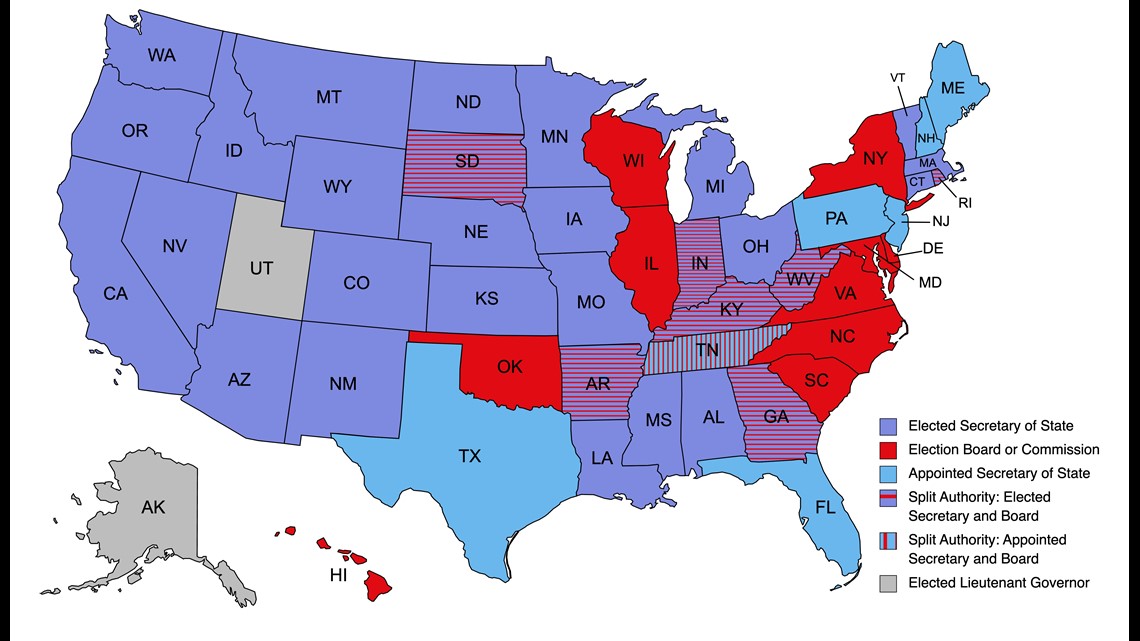
Most local municipalities have an elected or appointed official that helps manage local races, like for mayor or a seat on a city council. They also help manage polling locations for statewide elections. A city or county elections clerk or elections board is supported by the chief state officer, the National Conference of State Legislatures (NCSL) says.
More from VERIFY: No, absentee ballots aren’t only counted in close races
How states protect the integrity of the election system
Each state has their own process for ensuring an election and vote counting is safe and secure.
Election security measures vary by state but typically include things like signature verification and identification checks.
For example, in California, voting machines and voting systems are not connected to the internet and votes are cast on paper ballots. There is also a strict process to verify a person’s signature on vote-by-mail identification envelopes and provisional ballot envelopes.
In Ohio, voter machines also aren’t connected to the internet and the ballots are either on paper or a voter-verified paper audit trail, which means if a person does cast their ballot electronically the voter receives a print-out of their ballot and can review it prior to casting the vote. Voters in Ohio also must present some form of identification.
In Texas, the state outlines the size, shape and material of each ballot box to make sure they can’t be tampered with. Any place a ballot is kept or counted are also under video surveillance in Texas and armed peace officers are stationed at any central ballot counting location.
“The dispersed responsibility for running elections also makes it extremely difficult, if not impossible, to rig U.S. elections at the national level,” the NCSL says.
To learn about election integrity and safeguards in your area, you can visit your individual state’s election board or secretary of state’s website.
